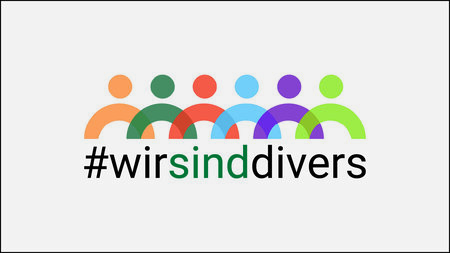Daniel Brand

-
Telefon:+49 371 531-38957
-
E-Mail:
-
Sprechzeiten:Nach Vereinbarung. Bitte kontaktieren Sie mich per E-Mail.
Forschungsschwerpunkte
- Kognitive Modellierung
- Prädiktive Modellierung menschlichen Schlussfolgerns
- Syllogistisches Schließen
- Informationssysteme
Lebenslauf
Berufserfahrung
- seit 02/2022: Wissenschaftlicher Mitarbeiter; TU Chemnitz; Professur Prädiktive Verhaltensanalyse
- 02/2021 - 07/2021: Wissenschaftlicher Mitarbeiter; Syddansk Universitet (SDU); Abteilung für Design und Kommunikation
- 07/2020 - 02/2022: Wissenschaftlicher Mitarbeiter; Albert-Ludwigs-Universität Freiburg; Cognitive Computation Lab
- 05/2017 - 06/2020: Wissenschaftlicher Mitarbeiter; Albert-Ludwigs-Universität Freiburg; Center for Cognitive Science
Bildungsweg und Qualifikationen
- 2016: MSc. Computer Science, Albert-Ludwigs-Universität Freiburg
- 2012: BSc. Computer Science, Albert-Ludwigs-Universität Freiburg
Lehre
- SS 2022: Dozent; Seminar: Kognitive Ergonomie; TU Chemnitz
- SS 2021: Assistent; Seminar: Cognitive Modeling; Cognitive Computation Lab; Albert-Ludwigs-Universität Freiburg
- SS 2020: Assistent; Seminar: Cognitive Modeling; Cognitive Computation Lab; Albert-Ludwigs-Universität Freiburg
- WS 2019/20: Assistent; Seminar: Cognitive Reasoning: Methods, Algorithms, and Statistics to Discern Human from Artificially Generated Data; Cognitive Computation Lab; Albert-Ludwigs-Universität Freiburg
- SS 2019: Assistent; Seminar: Cross-Domain Modeling of Human Cognition; Cognitive Computation Lab; Albert-Ludwigs-Universität Freiburg
- SS 2014: Tutor; Cloud Computing; Department for Databases and Information Systems; Albert-Ludwigs-Universität Freiburg
- SS 2012: Tutor; Software Engineering; Department for Software Engineering; Albert-Ludwigs-Universität Freiburg
Projekte
Aktuelle Projekte
- Automatische Prozessmodellgenerierung für Kognitive Modellierung
Vorherige Projekte
Software
- CCOBRA (Cognitive COmputation for Behavioral Reasoning Analysis) Framework: Online predictive modelling of human reasoning. [Website] [GitHub]
- PVA Webexperiment Tools: Sammlung an Vorlagen und Aufgaben für die einfachere Erstellung von Webexperimenten [GitHub]
- Syllogistic Task Predictor: Interaktive Prädiktions-Umgebung für syllogistisches Schlussfolgern [Website]
- pyTailorshop: Implementation der Tailorshop-Simulation in Python [GitHub]
Publikationen
- Mannhardt, J., Bucher, L., Brand, D., & Ragni, M. (2021). Predicting spatial belief reasoning: comparing cognitive and AI models. In T. C. Stewart (Ed.), Proceedings of the 19th International Conference on Cognitive Modeling (pp. 184–190). University Park, PA: Applied Cognitive Science Lab, Penn State. [PDF]
- Riesterer, N., Brand, D., & Ragni, M. (2020). Feedback Influences Syllogistic Strategy: An Analysis based on Joint Nonnegative Matrix Factorization. In T. C. Stewart (Ed.), Proceedings of the 18th International Conference on Cognitive Modeling (pp. 223–228). University Park, PA: Applied Cognitive Science Lab, Penn State. [PDF] [GitHub]
- Brand, D., Riesterer, N., & Ragni, M. (2020). Extending TransSet: An Individualized Model for Human Syllogistic Reasoning. In T. C. Stewart (Ed.), Proceedings of the 18th International Conference on Cognitive Modeling (pp. 17–22). University Park, PA: Applied Cognitive Science Lab, Penn State. [PDF] [GitHub]
- Riesterer, N., Brand, D., & Ragni, M. (2020). Do Models Capture Individuals? Evaluating Parameterized Models for Syllogistic Reasoning. In S. Denison, M. Mack, Y. Xu, & B. C. Armstrong (Eds.), Proceedings of the 42nd Annual Conference of the Cognitive Science Society (pp. 3377-3383). Cognitive Science Society. [PDF] [GitHub]
- Brand, D., Riesterer, N., Dames, H., & Ragni, M. (2020). Analyzing the Differences in Human Reasoning via Joint Nonnegative Matrix Factorization. In S. Denison, M. Mack, Y. Xu, & B. C. Armstrong (Eds.), Proceedings of the 42nd Annual Conference of the Cognitive Science Society (pp. 3254-3260). Cognitive Science Society. [PDF] [GitHub]
- Riesterer, N., Brand, D., & Ragni, M. (2020). Predictive Modeling of Individual Human Cognition: Upper Bounds and a New Perspective on Performance. Topics in Cognitive Science, 12(3), 960–974. doi: 10.1111/tops.12501. [GitHub]
- Riesterer, N., Brand, D., Dames, H., & Ragni, M. (2020). Modeling Human Syllogistic Reasoning: The Role of "No Valid Conclusion". Topics in Cognitive Science, 12(1), 446-459. doi: 10.1111/tops.12487. [GitHub]
- von Stülpnagel, R., Brand, D., & Seemann, A. K. (2019). Your neighbourhood is not a circle, and you are not its centre. Journal of Environmental Psychology, 66, 101349. doi: 10.1016/j.jenvp.2019.101349.
- Brand, D., Riesterer, N., & Ragni, M. (2019). On the Matter of Aggregate Models for Syllogistic Reasoning: A Transitive Set-Based Account for Predicting the Population. In Stewart T. (Ed.), Proceedings of the 17th International Conference on Cognitive Modeling (pp. 5–10). Waterloo, Canada: University of Waterloo. [PDF] [GitHub]
Vorträge und Posterpräsentationen
- "Effect of Response Format on Syllogistic Reasoning" @ CogSci 2023. Online, July 2023. [poster]
- "Uncovering iconic patterns of syllogistic reasoning: A clustering analysis" @ 21th International Conference on Cognitive Modeling. Online, July 2023. [slides]
- "Do models of syllogistic reasoning extend to generalized quantifiers?" @ 20th International Conference on Cognitive Modeling. Online, July 2022. [slides]
- "Model-based explanation of feedback effects in syllogistic reasoning" @ 19th International Conference on Cognitive Modeling. Online, July 2021. [talk]
- "Unifying models for belief and syllogistic reasoning" @ 43th Annual Meeting of the Cognitive Science Society. Online, July 2021. [slides] [poster]
- "How usable is Galaxy? A usability evaluation of Galaxy" @ 2019 Galaxy Community Conference (GCC2019). Freiburg, Germany, July 2019. [poster]
- "Extending TransSet: An Individualized Model for Human Syllogistic Reasoning" @ 18th International Conference on Cognitive Modeling. Online, July 2020. [short slides] [talk]






